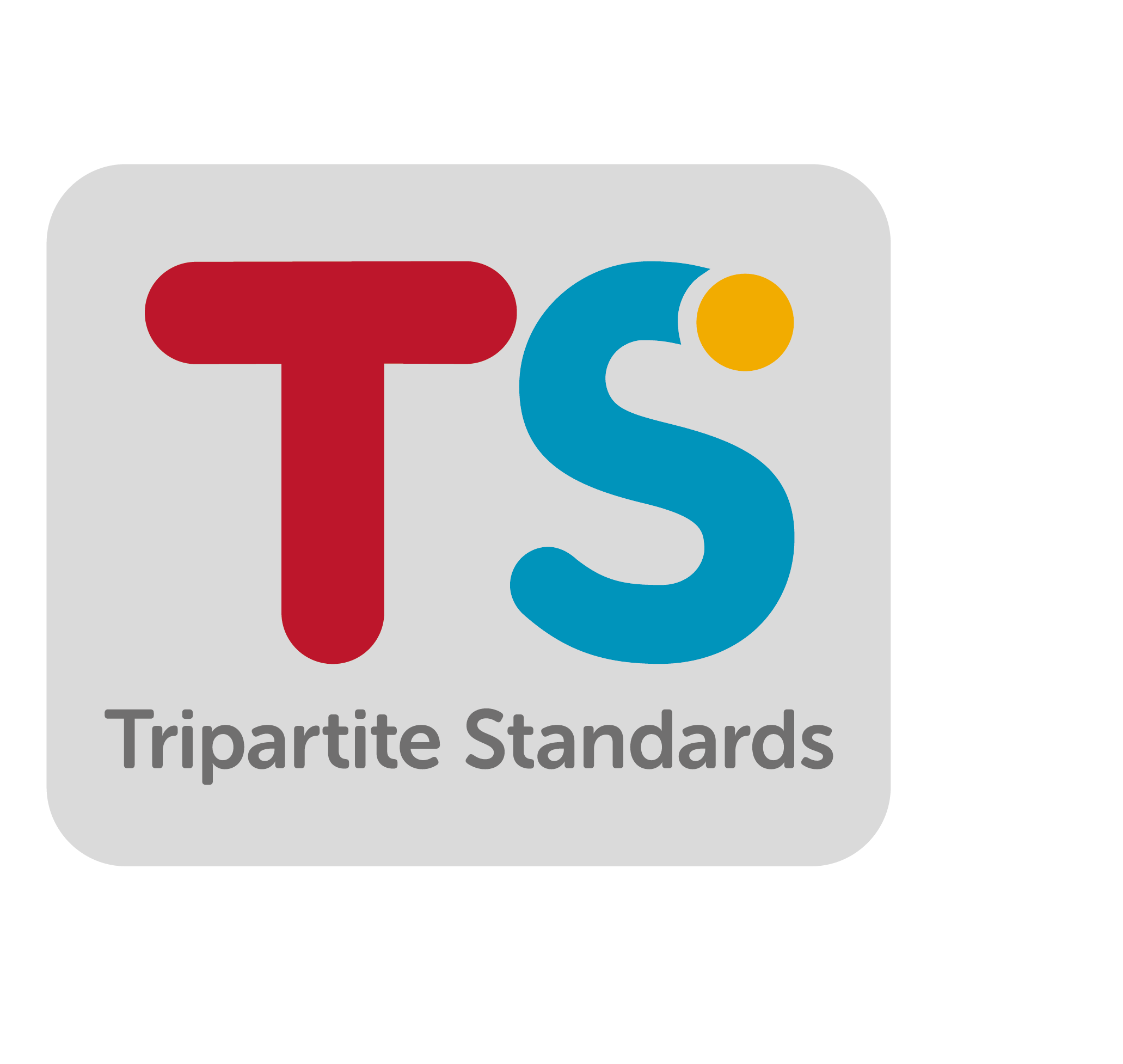Revised COMPASS C2 & C5 University List and Shortage Occupation List, effective from 1 January 2025
This month’s newsletter highlights key updates, including the newly revised COMPASS C2 & C5 University List and Shortage Occupation List, effective from 1 January 2025. We also discuss the upcoming Workplace Fairness Bill, designed to combat discrimination in hiring, dismissals, and appraisals, anticipated to take effect in 2026 or 2027, and what HR professionals need to know.
Additionally, we provide a quick guide on SkillsFuture Enterprise Credit for businesses and explore ways to address concerns around staggered working hours.
–
Recruitment Agency Singapore
New! Effective 1 Jan 2025. Updated COMPASS C2 & C5 University List and Shortage Occupation List
For new EP applications and renewals applications from 1 January 2025, they must meet
- Stage 1: EP Qualifying salary requirements
- Stage 2: Earn at least 40 points in COMPASS
Here are 2 updated lists released in November 24, applicable to new and renewal applications from 1 January 2025.
COMPASS C2: Qualifications. Updated List of Universities Eligible for 20 Points.
EP candidates will earn 20 points on COMPASS Criterion 2 for bachelor’s degree and above qualifications earned from the following eligible institutions.
Click here to see the updated list of Institutions awarded 20 points (Released in Nov 24)
• For Group A institutions, 20 points are awarded for degrees from all faculties
• For Group B institutions, 20 points are awarded only for degrees from specific faculties
Previously, EP applicants from these 5 Japanese universities—the University of Tokyo, Kyoto University, Osaka University, Tohoku University, and Tokyo Institute of Technology—qualified for the 20-point eligibility across all faculties.
Now, EP applicants holding MBA from Waseda University and Keio University have been added to the list, though these newly added universities are eligible only for their MBA programs.
COMPASS C5: Skills Bonus. Updated List of Shortage Occupation List.
Under COMPASS C5 section, it is a bonus section recognises jobs that require highly specialised skills, which are in shortage in the local workforce.
Click here to see the updated SOL list (Released in Nov 24)
To obtain the C5. Skills bonus,
- Candidates need to perform the job duties listed for the specific shortage occupation.
- Employers are required to select one of the eligible job titles in their EP application.
- Candidates needs to meet checks on additional job requirements if they fall into either of these categories:
- They need the SOL bonus points to pass COMPASS.
- They are applying for a five-year duration EP for a specific tech occupation on the SOL.
For more information on EP Applications, please refer to the website below.
Eligibility for Employment Pass
COMPASS C1. Salary benchmarks
Be sure to use the Self-Assessment Tool (SAT) in advance before applying for an EP to verify whether the prospective applicant’s profile meets the approval criteria.
hiring agency singapore
Recruitment Agency Singapor
New Workplace Fairness Bill: What HR Practitioners Need to Know
On Nov 12, Parliament introduced Singapore’s new Workplace Fairness Bill, aimed at tackling discrimination in hiring, dismissals, and appraisals. Expected to take effect in 2026 or 2027, the legislation will bolster merit-based practices and safeguard workers across all levels. Here’s an in-depth look at what this means for HR practitioners.
Core Provisions of the Workplace Fairness Bill
1. Addressing Discrimination in Key Employment Decisions
The Bill prohibits discriminatory actions in hiring, dismissals, and appraisals based on key characteristics, including:
- Age
- Nationality
- Sex
- Marital status
- Pregnancy
- Caregiving responsibilities
- Race
- Religion
- Language ability
- Disability
- Mental health condition
These characteristics account for 95% of discrimination cases reported to the Ministry of Manpower (MOM) and the Tripartite Alliance for Fair and Progressive Employment Practices
2. Structured in Two Parts for Staged Implementation
Introduced in two phases, the Bill includes:
- Bill One: Outlines foundational principles, dispute resolution processes, and corrective measures.
- Bill Two: To be introduced in 2025, this will define specific claims procedures and amend the Employment Claims Act.
This phased approach allows employers more time to prepare, while full compliance will be required concurrently by 2026-2027

3. Punitive Actions for Serious Breaches
The new Bill introduces enforceable penalties, including:
- Fines and Civil Lawsuits: Serious breaches can lead to civil lawsuits filed by MOM, with courts able to impose significant financial penalties.
- Anti-Retaliation Protections: Employers are prohibited from retaliatory actions—such as termination or pay cuts—against employees who report discriminatory practices.

4. Flexibility for Business-Specific Requirements
While reinforcing fair practices, the legislation permits flexibility, allowing employers to:
- Specify job traits based on business needs (e.g., language proficiency for interpretation roles).
- Implement practices favoring specific groups (e.g., hiring older or disabled workers) to support national employment objectives.
Religious organizations are exempted, and certain cases are permitted to cater to unique service needs, like hiring female-only staff for female clientele.
5. Additional Compliance Period for Small Businesses
Small businesses with fewer than 25 employees will have an additional 5 years to comply, recognizing their unique resource constraints.
6. Mandatory Grievance-Handling Processes
Employers must set up clear grievance-handling frameworks, including:
- Procedures for complaint inquiries, documentation, and communication with confidentiality assurance.
- Clear communication to employees on how to report discrimination safely.
- Unionized employees can claim up to $30,000 for discrimination cases, with non-union claims capped at $20,000.
7. Educational Emphasis on Fair Employment Practices
While the Bill strengthens legal frameworks, MOM, SNEF, and NTUC emphasize that education remains crucial to nurturing inclusive practices. These organizations are committed to supporting employers and workers in understanding the new guidelines through advisory and training programs.
Once passed, Singapore will align with international standards, joining countries like the UK, US, and EU in legislating workplace anti-discrimination measures.
Source: https://www.straitstimes.com/singapore/politics/new-workplace-fairness-bill-proposed-to-protect-spore-workers-against-discriminatory-practices (straitstimes.com)
Recruitment Agency Singapore
Quick Guide on SkillsFuture Enterprise Credit (SFEC) for Businesses
Till 30 June 2025, businesses can use their $10,000 SkillsFuture Enterprise Credit to cover up to 90% of their employee training costs.
Here’s a quick guide on the SkillsFuture Enterprise Credit (SFEC) for businesses:
Eligibility
- Business Establishment: Must have been incorporated for at least 3 years in Singapore.
- Employment Size/Financial Requirement: Must have at least 3 local employees (Singapore Citizens or Permanent Residents) each month over the last 3 months or have made at least $10,000 in Skills Development Levy contributions over the qualifying period.
What Can It Be Used For?
SFEC covers a broad range of expenses, including:
- Employee Training: Support for courses to help upskill employees in areas like digital skills, leadership, or industry-specific competencies.
- Job Redesign: Funding for projects that restructure job roles to improve productivity or make jobs more sustainable for employees.
- Technology and Digital Solutions: Financial support for adopting new technologies, such as HR tech or digital marketing tools.
- Productivity Initiatives: Funding for projects to improve workflows, reduce time wastage, or automate routine tasks.
How to Claim
- Pre-approved Programmes: To use SFEC, businesses need to select pre-approved courses, projects, or tools under schemes supported by Enterprise Singapore, IMDA, and other government agencies.
- Automatic Application: Eligible businesses are automatically informed of their SFEC eligibility by the government, so there’s no need to apply separately.
- Claim Process: Once expenses are incurred, businesses submit claims through the Business Grants Portal, providing proof of expenditure and completion of projects or courses.
For more information, visit: https://skillsfuture.gobusiness.gov.sg/support-and-programmes/funding/skillsfuture-enterprise-credit-sfec
Recruitment Agency Singapore
Overcoming Concerns About Staggered Work Hours
From 1 December 2024, all employers in Singapore must fairly consider formal employee requests for flexible work arrangements (FWAs) under the new mandatory Tripartite Guidelines on Flexible Work Arrangements (Guidelines).
Implementing staggered hours can boost productivity, extend operating hours, and support business continuity, but it’s common to face some scepticism.
Here’s how to address it:
- “Too Hard to Monitor”: Set clear time bands instead of random start times. This way, employees pick from set options, making schedules easier to manage and monitor.
- “Communication Issues”: Establish core hours when everyone is available and use collaboration tools. Consider core office days for in-person meetings to maintain team cohesion.
- “Risk of Favoritism”: Keep policies transparent and consistent, outlining eligibility and expectations. Clear communication builds trust and ensures fair access for all.
By addressing these concerns thoughtfully, staggered hours can be a seamless addition to your workplace.
Visit the Tripartite Guidelines on Flexible Work Arrangement Requests for more resources and tools on implementing staggered time and other FWAs.
Recruitment Agency Singapore
Recruitment Agency Singapore
Disclaimer: Please use the information provided in this newsletter at your own discretion and risk. We are not responsible for any losses incurred by users in relation to the information provided in this newsletter and we seek your understanding.















